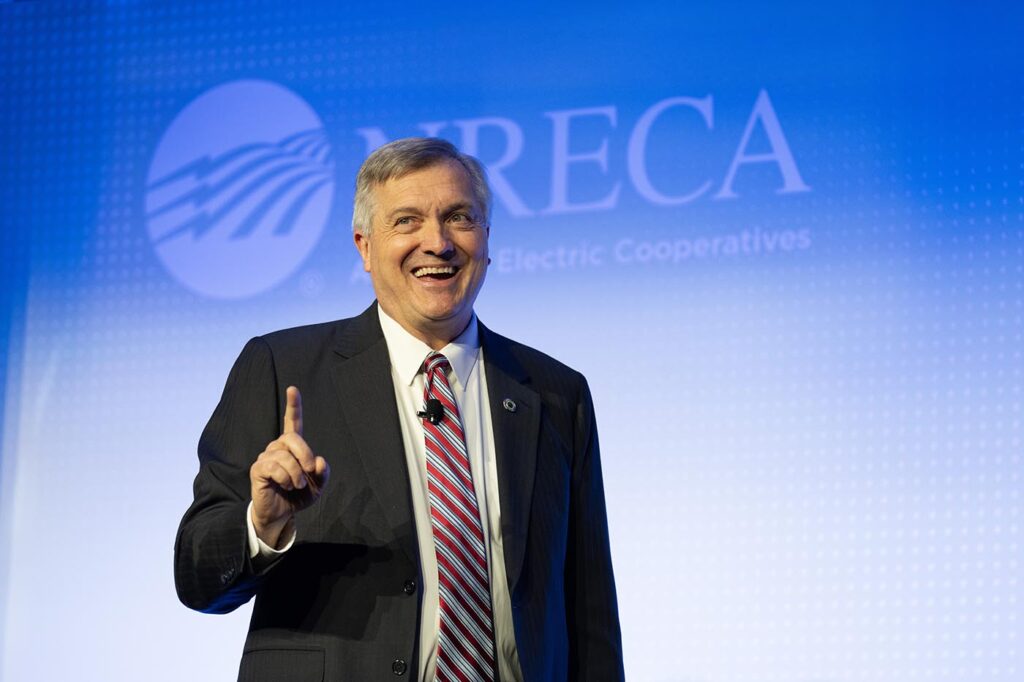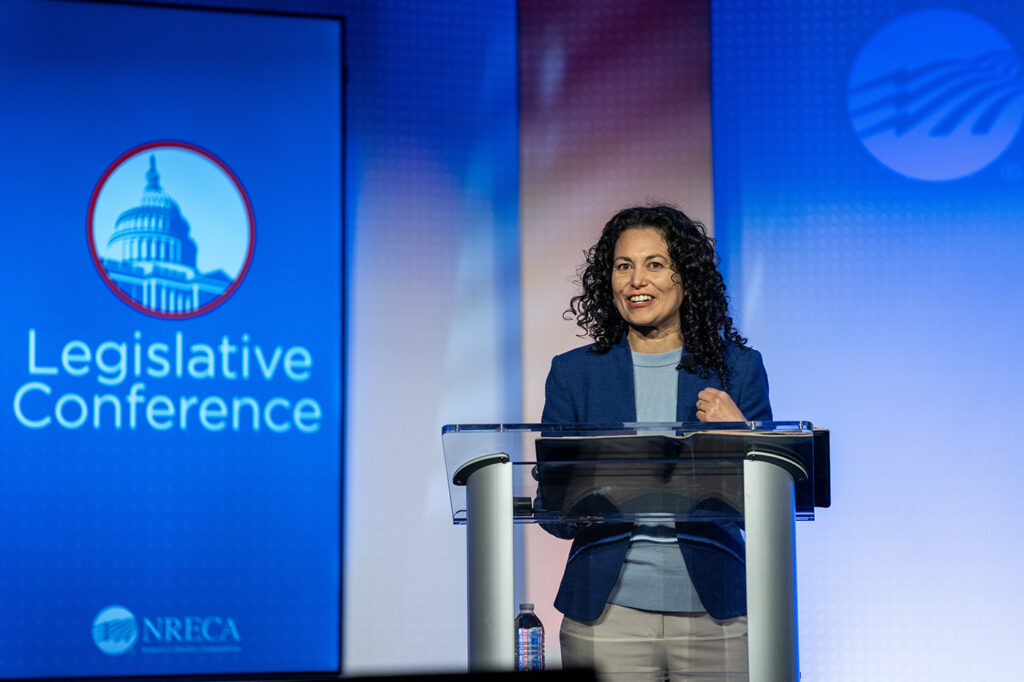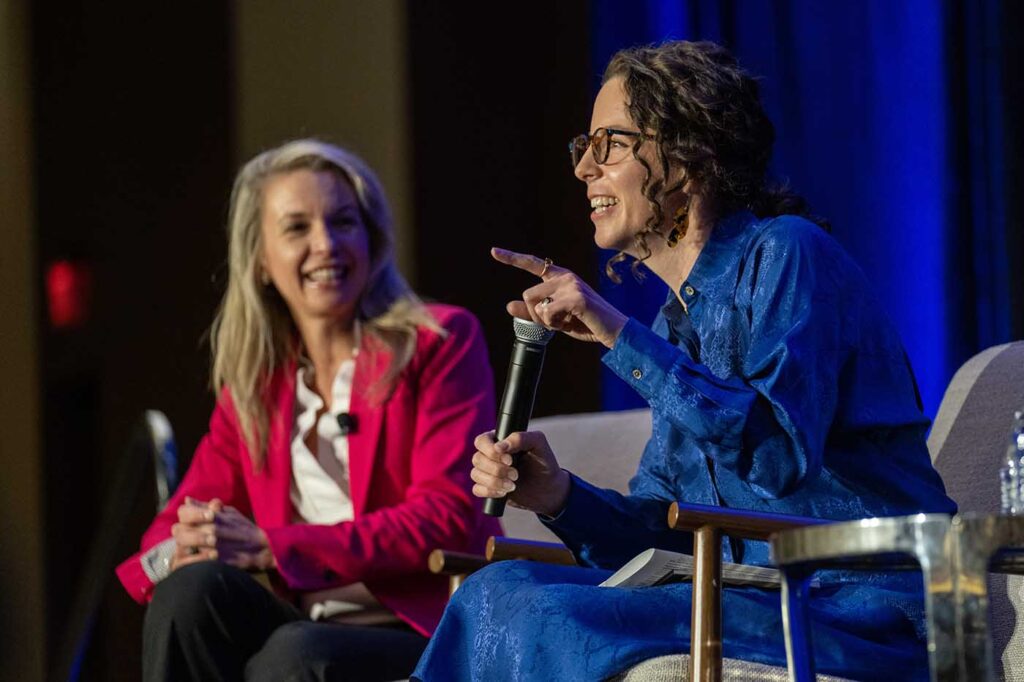
WASHINGTON—More than 1,200 electric cooperative leaders gathered in the nation’s capital this week to meet with members of Congress and Biden administration officials and push for policies that ensure reliable, affordable electricity for rural America.
“Your voices matter,” NRECA CEO Jim Matheson told co-op leaders Monday at the association’s 2024 Legislative Conference on Capitol Hill. He cited a list of recent policy victories that include unprecedented funding opportunities for co-ops to invest in innovative energy technologies.
Co-ops bring a unique message to Congress and federal agencies because they are not-for-profit and are owned by the consumer-members they serve, said Louis Finkel, NRECA’s senior vice president of Government Affairs.
“We’re about people, not profits,” he said.
That message was reinforced by Deputy Agriculture Secretary Xochitl Torres Small as she addressed the conference. She said the USDA listens to co-ops because they are so connected to their communities.
“You are deeply respected—not only in rural development, but across USDA,” she said.
As co-ops tap into an unparalleled amount of new federal infrastructure funding from the bipartisan infrastructure law and the Inflation Reduction Act, “we are sharing an historic moment with you,” Torres Small said.
“This is the single largest infrastructure investment since the Rural Electrification Act in 1936,” she said. “That’s why it’s so important we’re partnering today.”

As part of advocacy efforts by NRECA and its members, Congress included a provision in the IRA that created the Empowering Rural America (New ERA) program, which provides $9.7 billion in grants and loans to co-ops for new and innovative clean energy systems. Co-ops have embraced the opportunity, submitting applications for more than $46 billion in projects.
The legislation also included direct-pay tax credits to help deploy new energy technologies, including carbon capture, nuclear, energy storage, renewables and more.
“Electric cooperatives have been remarkably successful in this challenging political environment,” Matheson said.
NRECA recently helped convince the Department of Energy to dramatically scale back a proposed rule that would have made it difficult for co-ops to get the distribution transformers that are essential for them to modernize their systems and help communities recover from disasters.
But, as the demand for electricity grows, challenges to reliability “are being exacerbated by bad public policy,” Matheson said.

The top priority for co-op leaders this week was to voice strong opposition to the Environmental Protection Agency’s power plant proposal, which threatens reliability by setting unrealistic deadlines and relying on technology that is not yet ready for wide-scale use, Matheson said. The EPA is expected to issue its final rule soon.
“We believe it’s unlawful, unreasonable and unachievable,” he said.
Co-op directors, CEOs and leaders of their statewide associations took that message to Congress as they met with lawmakers and their staffs.
Carolyn Turner, executive director of the Nevada Rural Electric Association, said it’s important for co-op leaders to meet regularly with their senators and House members, both in Washington and their home states, to ensure that the co-op message is heard.
“You’ve really got to make that personal connection,” she said, speaking as part of a panel at the conference’s Women in Power luncheon Monday. “It can make the difference in having that win at the end of the day.”
Erin Kelly is a staff writer for NRECA.